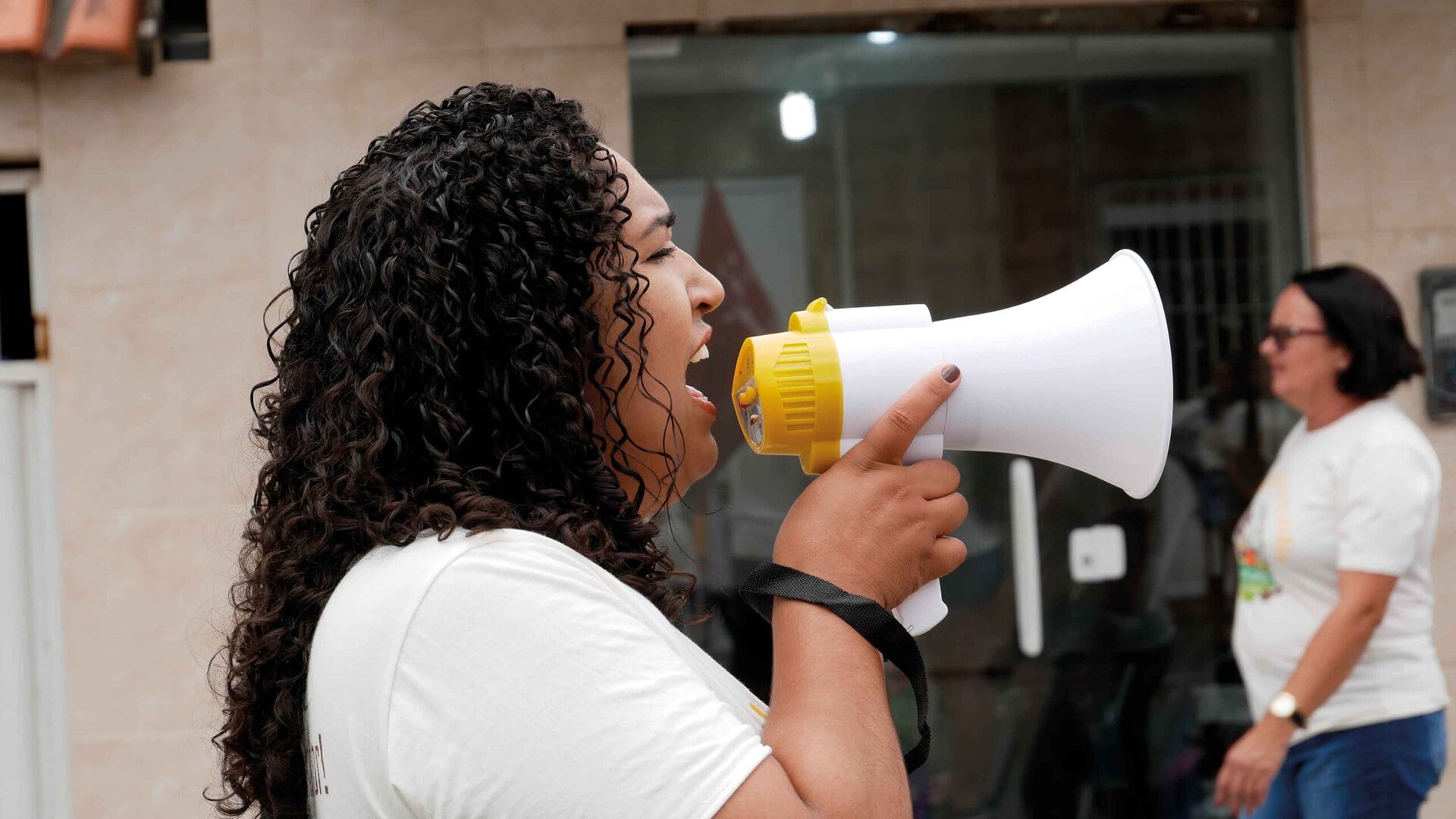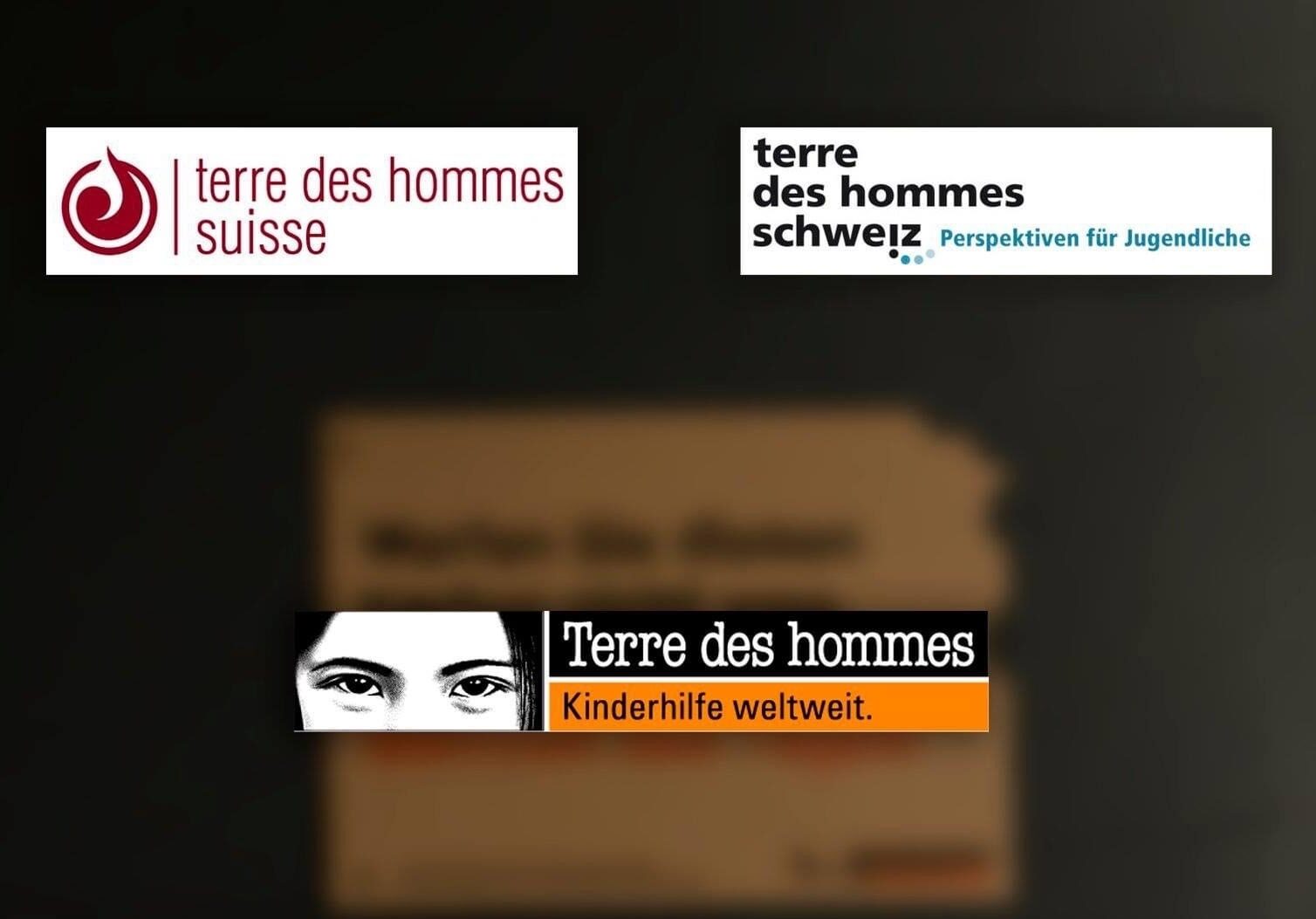In the Hamada desert, more than 174,000 Sahrawi refugees are waiting to return to their homeland of Western Sahara. While this is still occupied by Morocco, terre des hommes schweiz is working with the Sahrawi youth organization UJSARIO to help young refugees in the Smara refugee camp.
In the middle of the Sahrawi refugee camp Smara, between mud huts, picturesque junk and Sahrawi tents in the scorching sun, you suddenly pass through a gate in a wall of old car tires: it is the entrance to a green garden where tomatoes and mint are planted and even a few ducks waddle around. A lovingly painted sign reads: “Nomad Garden”. The garden next to goats or camels, which are provisionally fenced in with rusty mudguards, seems almost unreal. “Nomad Garden” is a utopia that has become reality, brought to life by Mohamed Salem. Modest and yet proud of what he has created with a lot of hard work, enthusiasm and pioneering spirit, the young Sahraui leans on his hoe with his lively eyes and begins to tell how he had to drop out of school in Algeria. As his father fell ill, he returned to the refugee camps, one of the most inhospitable parts of the Sahara, to help with the family. In perfect English, he explains how he learned the foreign language on the Internet. He read articles about organic farming methods, became active in online forums and at the same time began to persistently and determinedly plant his own garden. Growing vegetables is a blessing: 94 percent of Sahrawi refugees are dependent on meagre humanitarian aid and many suffer from malnutrition. The water shortage is glaring.
Important self-sufficiency
terre des hommes schweiz has been supporting the children and youth work of the Sahrawi youth organization UJSARIO in the Smara refugee camp for decades. The organization works with volunteers. Last year, it reached 2,000 children and 4,600 young people with numerous activities. Several play afternoons for children, courses for young people, cultural work, awareness-raising work, sports activities and social work are offered every week. UJSARIO Smara also works with the resourceful agronomist Taleb Brahim on a regular basis to implement small gardening projects. Taleb Brahim has developed interesting projects, such as a combined vegetable and fish farm. The fish use their excrement to produce the necessary fertilizer, which he feeds into his small greenhouse via hoses. There he produces vegetables, mint and green fodder for goats and chickens. He can in turn feed the fish with the eggs from the chickens. He sells the mint at the market. He can feed his family with vegetables, goats, eggs and fish. He often shares part of his harvest with his neighbors or another family in need. Mohamed Salem has adapted Taleb Brahim’s idea and he too is proud of his successful little fish tank.
Small pioneering project
Mohamed Salem was also just the right person for a small pioneering project on hydroponics developed by terre des hommes schweiz with UJSARIO Smara and Taleb Brahim. This is a new method for water-saving vegetable cultivation. Five Saharawis with experience in vegetable cultivation and an inventive spirit were selected for the pilot project. The aim was to further develop a new technology in a joint group. This group has now developed hydroponics together with Taleb Brahim. This method is based on the fact that the water used for irrigation is collected again via a system and seeps several times through the vegetable beds, which are planted with a special mixture of sand and soil. Mohamed Salem was immediately hooked – he tried out what grows well with the help of hydroponics and is now very enthusiastic about the project.
“Ode to the impossible”
The young Mohamed Salem is also inspired by the exchange with his long-time artist friend and neighbor Mohamed Suleiman Labat, who will be a guest at the Culturscapes cultural festival in Basel this autumn (see box on the right). The two of them sit together, eyes shining, in an old car body – which has since been retired and now serves as a small research laboratory for compost and humus formation. Mohamed Sulaiman Labat, who has already been to Europe, picks up the black soil and sniffs it enthusiastically: “It even smells like soil!” They have experimented with how they can produce fertile soil with organic material, as even the soil bacteria are missing in the desert. They discovered that a dash of goat’s milk promotes soil fertility. Mohamed Salem documented the creation of his garden with his cell phone. The result is a beautiful short film, which he presented at the 2022 Fisahara Film Festival, where it won third prize. In the Nomads Film Catalog (nomadshrc.org), the film is praised as an ode to the impossible. Examples like these show that even in inhospitable areas like the Sahrawi desert, dreams can come true if the refugees there receive support and are able to put their ideas and skills to the test.
Cluturscapes Festival October 2023
Western Sahara at the Culturescapes Festival in Basel Culturescapes, the interdisciplinary art festival that takes place every two years in October and November, is dedicating this year’s edition to the Sahara. terre des hommes schweiz is a partner on the subject of Western Sahara and will be present with films and guests. In October, we will be showing two short films about life and peaceful resistance in the occupied Western Sahara at Stadtkino Basel. Mohamed Mayara from Equipe Media, a group of video journalists who document human rights violations in the occupied territory, will be our guest. In November, Basel’s New Cinema is dedicating an entire film series to Western Sahara. Among others, the artist Mohamed Sulaiman Labat, who comes from the refugee camps in the Algerian desert, will be represented with two films and will be present for a discussion afterwards.



